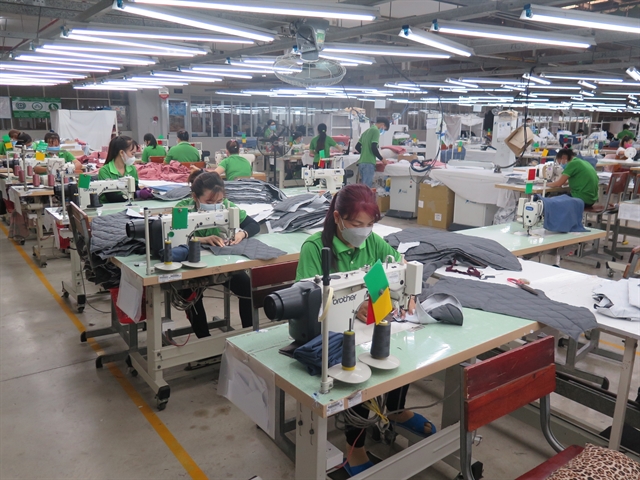

|
A Vietnamese customer visits the Amazon website. Việt Nam's firms are advised to embrace digital transformation to expand their market footprint via e-commerce. VNA/VNS Photo Dương Giang
At a seminar discussing e-commerce under the UKVFTA on January 18, Thái said bilateral trade surpassed US$6 billion in 2021. Compared to the pre-agreement period, Việt Nam’s exports went up 16.4 per cent and the UK’s exports 23.6 per cent.
However, Vietnamese goods took up just a tiny part (0.88 per cent) of the UK’s total imports. The same is also true for British goods. That means there is still plenty of room for trade growth, and Vietnamese firms could rely on online platforms to expand their market reach in the UK, Thái added.
Oliver Todd, British Consul General in HCM City, noted that the pandemic has given fresh impetus to Việt Nam’s e-commerce industry. The sector recorded a growth of up to 53 per cent in 2021, making it the optimal form of transactions for individuals and firms.
With such rapid growth, the consul general believed it was time for both sides to raise the bar on this platform in order to facilitate online business.
Bùi Thanh Hằng, head of the International Cooperation Office under MoIT’s E-commerce and Digital Economy Agency, said the UKVFTA has allowed new means of market entry to emerge, notably e-commerce.
B2B and B2C are traditional forms of business for this platform, but new forms are also beginning to take root, including online showrooms and national pavilions.
To help firms keep pace with these innovations, the government is urged to continue to refine the legal framework and develop programmes that improve firms’ capacity.
Firms themselves are also advised to embrace digital transformation and put it on top of their agenda to be able to expand their market footprint via e-commerce.
The UK is always among the top buyers on Alibaba.com, except for agricultural produce. The country positioned itself on top 10 buyers of food and beverage, top six for clothes, and came in fourth in terms of furniture.
Notably, it was the second-largest buyer of Vietnamese cosmetics on that e-commerce website.
According to Trần Thị Yến Phi, chief executive officer of DSW Company, e-commerce would allow firms to enter the market with ease, but e-commerce alone is not enough. To persuade customers to buy online, it’s all about product quality and communication skills.
Phi said products sold via B2C companies like Amazon would involve customs procedures and the selection of transport modes.
Meanwhile, to sell products via B2B companies like Alibaba, firms need to be well-grounded in commercial contracts and contractual standards set for their products.
They also need to ensure the products fit the bill before entering the UK’s market, she stressed. — VNS



















